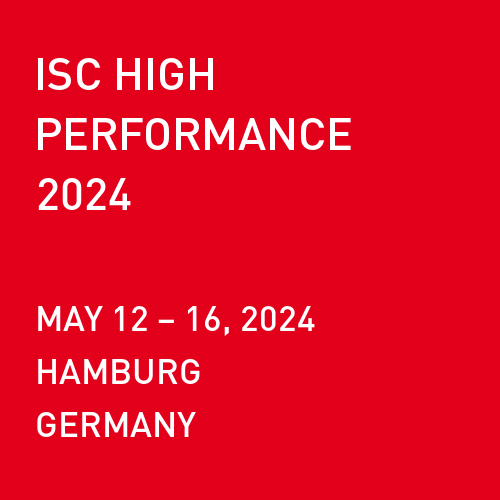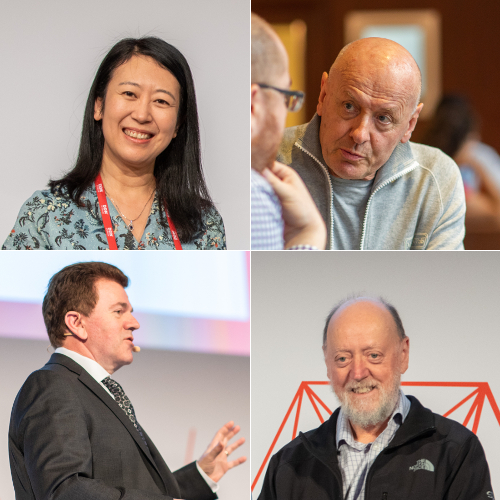ISC Fellows
ISC Fellows are individuals who have contributed significantly to high performance computing, the community, and the ISC High Performance conference series.

Frank Baetke
President,
European Open File System Association (EOFS)
Frank Baetke began his career as a researcher and academic advisor at the Technical University of Munich (TUM). He joined Convex Computer Corp. in 1986 as manager of S/W operations and in 1992 was promoted to its European Marketing Director. After the acquisition of Convex by HP in 1995 he joined HP’s worldwide marketing organization in the US as head of business development for the academic and scientific research segment. He also initiated and led the development and growth of HP/HPE’s worldwide HPC-user community HP-CAST. Since 2018 he has retired from HPE but remains active in HPC as president of the European Open File System Association (EOFS) https://www.eofs.eu/. He is a member of ACM and IEEE, the German Astronomical Society (AG), the Institute of Physics (IOP), the German Informatics Society (GI) and the Max Planck Society. He holds a master of science (Dipl.-Ing.) in engineering and a PhD (Dr.-Ing.) in applied physics and has published numerous contributions in the field of high-performance computing and related areas.
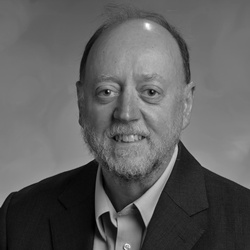
Jack Dongarra
Distinguished Professor,
Computer Science at
University of Tennessee &
Oak Ridge National Laboratory
Jack Dongarra is the recipient of the 2021 ACM A.M. Turing Award. ACM bestowed the award for Dongarra’s pioneering contributions to numerical algorithms and libraries that enabled high performance computational software to keep pace with the hardware improvements that have taken place over the last four decades.
Jack holds an appointment at the University of Tennessee, Oak Ridge National Laboratory, and the University of Manchester. He specializes in numerical algorithms in linear algebra, parallel computing, use of advanced-computer architectures, programming methodology, and tools for parallel computers. He was awarded the IEEE Sid Fernbach Award in 2004; in 2008 he was the recipient of the first IEEE Medal of Excellence in Scalable Computing; in 2010 he was the first recipient of the SIAM Special Interest Group on Supercomputing's award for Career Achievement; in 2011 he was the recipient of the IEEE Charles Babbage Award; in 2013 he received the ACM/IEEE Ken Kennedy Award; and in 2019 he received the ACM/SIAM Computational Science and Engineering Prize. He is a Fellow of the AAAS, ACM, IEEE, and SIAM and a foreign member of the Russian Academy of Science, a foreign member of the UK Royal Society, a member of the US National Academy of Engineering, and a member of the US National Academy of Sciences.
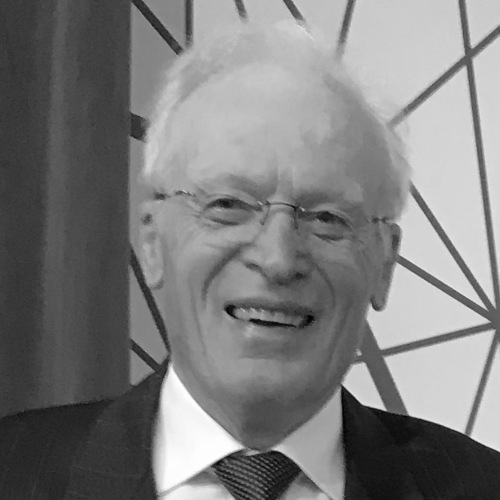
Horst Gietl
ISC Fellow
Horst Gietl studied Mathematics and Information Technology at the Technical University in Munich (TUM). During his studies he received a scholarship from the German Academic Exchange Service (DAAD) at the ETH in Zuerich/Switzerland for 1 year. He holds a Master of Science (Dipl.-Math.) in Mathematics and a PhD (Dr. rer. nat.) from the Faculty of Mathematics at TUM. From 1974 he worked at the Leibniz Computing Centre in Munich in the application and support group for large technical/scientific application programs. During this time he was also leading a project of the German Research Organization named „Vectorization of numerical applications to get highest performance out of a vector processor”. He went on to join Siemens as a manager for the vector processor applications/support group in 1983, working with Fujitsu’s vector processors. In 1991 he assumed the role of Director for Product Marketing and Product Management at the parallel processor manufacturer NCUBE/US. In this position he was head of the support group for interactive multimedia projects and database projects in Europe and the Middle East.
Between 2006 and 2022 he lent his support to ISC Group as an Executive Consultant, where he was instrumental in continuously evolving the technical program of the ISC High Performance conference series.

Karl Kaiser
Professor, Computer Engineering,
Department of Computer Science,
University of Hamburg
Karl Kaiser has been a professor of Computer Engineering (with focus on Industrial Data Processing and Autonomous Mobile Systems) at the Department of Computer Science of the University of Hamburg. He was also the dean of the department from 1985 - 1988 and the Director of the Regional Computing Center (RRZ) of the University of Hamburg from 1988 - 2010. Kaiser worked in civil engineering and taught at several German universities before his appointment in Hamburg. Kaiser had studied mathematics and civil engineering at the RWTH Aachen University and received a PhD (Dr.-Ing.) from the University of Bochum.
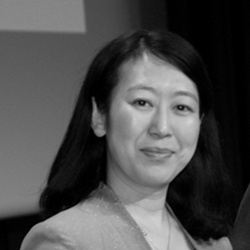
Yutong Lu
Director, National Supercomputing Center, Guangzhou, China
Yutong Lu is the Director of National Supercomputing Center in Guangzhou, China. She is also the professor in the School of Computer Science at Sun Yat-sen University, as well as at the National University of Defense Technology (NUDT). Her extensive research and development work has spanned several generations of domestic supercomputers in China, which includes her role as the deputy chief designer of the Tianhe supercomputers. She is also leading a number of HPC and big data projects under the support of the Chinese Ministry of Science and Technology, the National Natural Science Foundation of China, and Guangdong Province. Her current research interest includes large-scale storage systems, high performance computing, and computer architecture.
Yutong Lu received her B.S., M.S., and Ph.D. degrees of computer science from NUDT. She was bestowed a first class award and outstanding award for Chinese national science and technology progress in 2009 and 2014. Her continuing research interests include parallel operating systems, high-speed communication, large-scale file systems and data management, and advanced programming environments and applications.
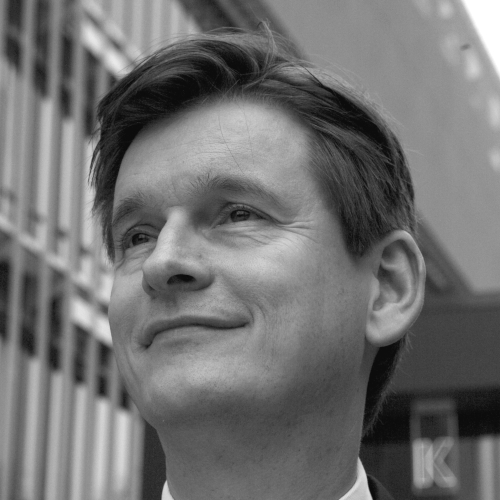
Thomas Ludwig
Professor for Informatics at Universität Hamburg &
Director of DKRZ in Hamburg, Germany
Thomas Ludwig received his doctoral degree and the German habilitation degree at the Technische Universität München, where he conducted research on HPC from 1988 to 2001. From 2001 to 2009 he had a chair for parallel computing at the Universität Heidelberg. Since 2009 he is the director of the German Climate Computing Centre (DKRZ) and professor at the Universität Hamburg. His research activity is in the fields of high volume data storage and energy efficiency. At DKRZ Prof. Ludwig takes the responsibility for accomplishing its mission: to provide high performance computing platforms, sophisticated and high capacity data management, and superior service for premium climate science.
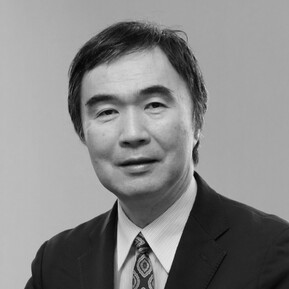
Satoshi Matsuoka
Director, Riken Center for Computational Science (R-CCS), Japan
Satoshi Matsuoka has been the director of RIKEN Center for Computational Science (R-CCS) since 2018. He is responsible for developing the supercomputer Fugaku which was the fastest supercomputer in 2020, 2021 (Top500, HPCG, HPL-AI, Graph500). He has been conducting the cutting edge HPC research, including investigating Post-Moore era computing, especially Fugaku NEXT supercomputer.
He was the leader of the TSUBAME series of supercomputers at the Tokyo Institute of Technology, where he still holds a professor position.
Other accolades include the Fellow positions in societies/conferences ACM, ISC, JSSST and IPSJ; the ACM Gordon Bell Prizes in 2011 and 2021; IEEE-CS Sidney Fernbach Award in 2014; IEEE-CS Computer Society Seymour Cray Computer Engineering Award in 2022; Technical Papers Chair and Program Chair for SC09, SC13, and ACM Gordon Bell Prize committee chair in 2018. His longtime contribution for the computer science was commemorated with the Medal with Purple Ribbon in 2022.

Wolfgang E. Nagel
Director of the Center for Information
Services & High Performance Computing
(ZIH), Technische Universität Dresden,
Germany
Wolfgang E. Nagel is full professor of Computer Architecture at the Institute for Computer Engineering at Technical University (TU) Dresden. He graduated from RWTH Aachen University with a PhD, and has worked in the field of parallel programming since 1980s. He has published more than 100 papers in the areas of innovative computer architectures, efficient algorithms, modern programming concepts and software tools to support complex compute and data intensive applications. Nagel has been the dean of the Computer Science department at TU Dresden from 2006 to 2009.

Horst D. Simon
Director ADIA Lab, Abu Dhabi
& Adjunct Professor in the College
of Engineering at the University of
California, Berkeley
Since 2023, Horst Simon has been the director of ADIA Lab, an independent, Abu Dhabi-based laboratory dedicated to basic and applied research in data and computational sciences. Before, he was the Deputy Director of Lawrence Berkeley National Laboratory (Berkeley Lab). Simon’s research interests are in the development of sparse matrix algorithms, algorithms for large-scale eigenvalue problems, and domain decomposition algorithms for unstructured domains for parallel processing. His algorithm research efforts were honored with the 1988 and the 2009 Gordon Bell Prize for parallel processing research. He was also member of the NASA team that developed the NAS Parallel Benchmarks, a widely used standard for evaluating the performance of massively parallel systems. He is co-author of the biannual TOP500 list. He holds an undergraduate degree in mathematics from the Technische Universtät in Berlin and a Ph.D. in Mathematics from the University of California at Berkeley.
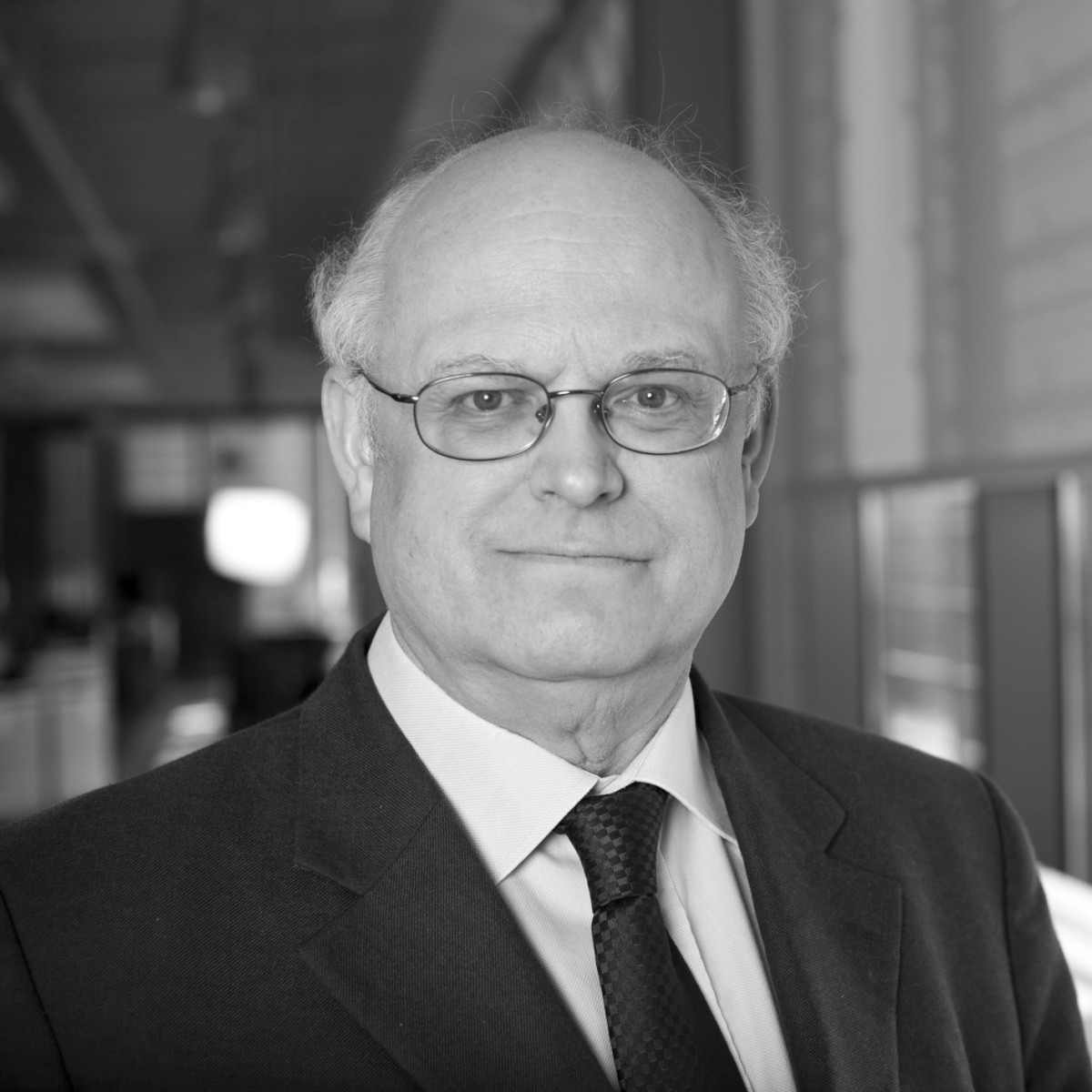
Thomas Sterling
Professor, Department of Intelligent Systems Engineering,
Director of AI Computing Systems Laboratory (AICSL)
Luddy School of Informatics, Computing, and Engineering
Thomas Sterling is a Full Professor of Intelligent Systems Engineering at Indiana University (IU) serving as Director of the AI Computing Systems Laboratory at IU’s Luddy School of Informatics, Computing, and Engineering. Since receiving his Ph.D from MIT as a Hertz Fellow in 1984, Dr. Sterling has engaged in applied research in parallel computing system structures, semantics, and operation in industry, government labs, and academia. Professional affiliations have included Harris Corp., IDA Supercomputing Research Center, NASA (GSFC, JPL), Un. of Maryland, Caltech, and LSU. Dr. Sterling is best known as the "father of Beowulf" for his pioneering research in commodity/Linux cluster computing for which he shared the Gordon Bell Prize in 1997. His current research is associated with innovative extreme scale computing through memory-centric non von Neumann architecture concepts to accelerate dynamic graph processing for AI including ML. In 2018, he co-founded the new tech company, Simultac LLC, and serves as its President and Chief Scientist. Dr. Sterling was the recipient of the 2013 Vanguard Award and is a Fellow of the AAAS. He has been selected this year to be inducted in the Space Technologies Hall of Fame. He is the co-author of seven books and holds six patents. Most recently, he co-authored the introductory textbook, “High Performance Computing”, published by Morgan-Kaufmann in 2018 which is going into 2nd edition.
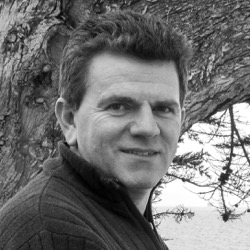
Erich Strohmaier
Senior Scientist and Group Lead,
Performance and Algorithms Research Group,
Computational Research Division,
Lawrence Berkeley National Laboratory, USA
Erich Strohmaier is a Senior Scientist and Group Lead of the Performance and Algorithms
Research group at the Lawrence Berkeley National Laboratory. His main interests are in
performance characterization, evaluation, modeling, and prediction for HPC systems and large scale scientific workflows. He is involved in the analysis of advanced-computer architectures and parallel programming paradigms, classification of kernels and programming patterns for scientific computational kernels. His recent work is on the analysis and optimization of data-intensive large scale scientific workflows and the application of machine learning for predicting their behavior and performance. He has a Dr. in Theoretical Physics from the University of Heidelberg, Germany. Strohmaier was awarded the 2008 ACM Gordon Bell Prize for parallel processing research in algorithmic innovation and was named a Fellow of the ISC Conference in 2017. He is a member of ACM, IEEE, and APS.


